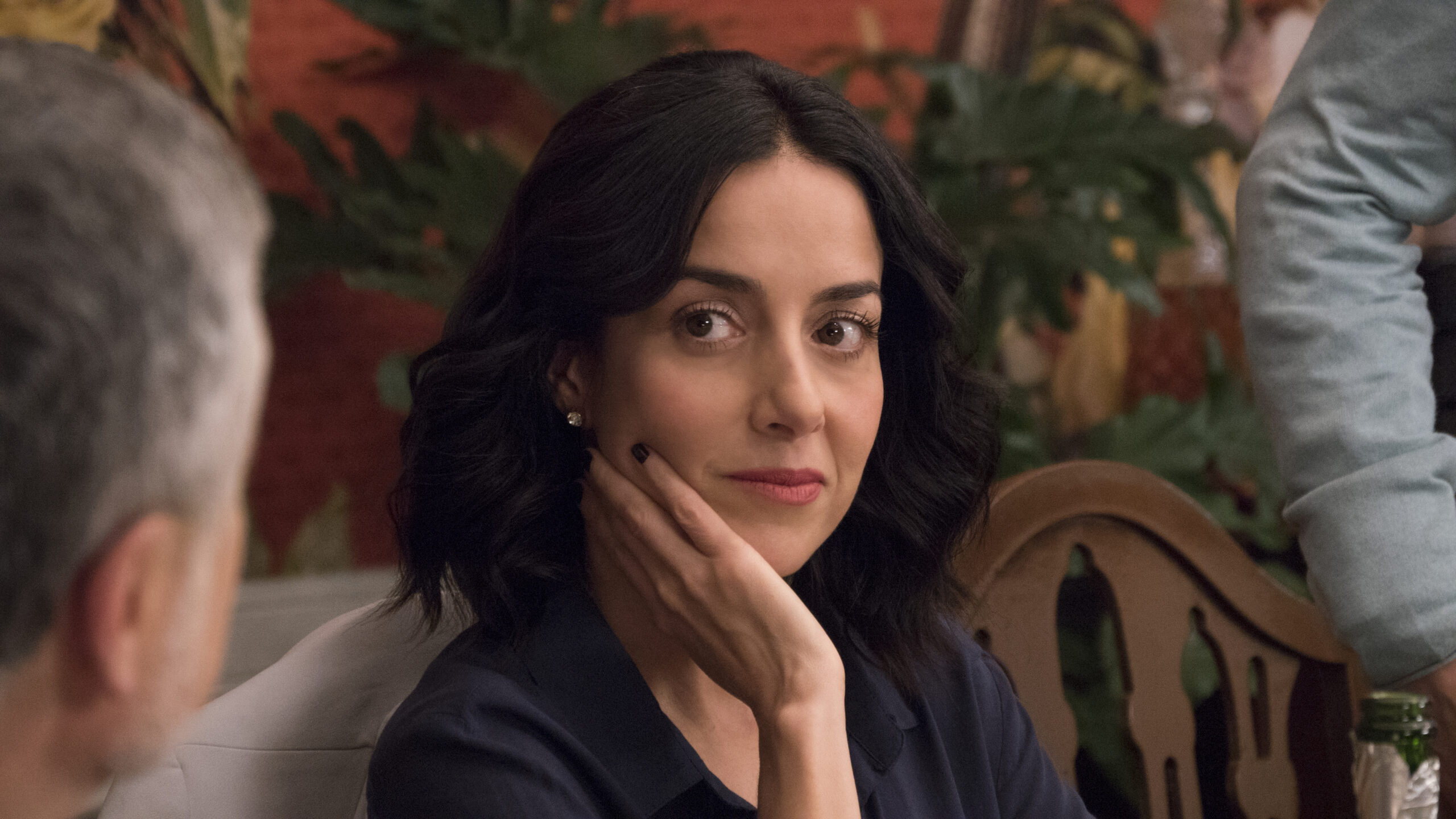Part of me finds Paulina de la Mora aspirational. Yes, as the eldest daughter in Netflix’s La casa de las flores, she’s part of the Mexican elite, the moneyed class that folks gossip about and track. And yes, her biggest lesson (spoiler!) is to care less about what people think, hardly revolutionary I know. But it’s not really her wealth that I envy — it’s her style. I’m talking about her literal and figurative style. Her wardrobe could be my Pinterest dream board, all wide-leg pants and architectural tops. In my imagination, my hair looks like hers (I do have a similar cut) but mine’s never so artfully styled. And then there’s her ability to communicate so much through those big brown eyes of hers.
Obviously, I have a bit of a crush. But it’s not so much about how she looks, it’s about how she is. Paulina can storm out of a room with a shawl artfully draped in front of her without it falling off. She can call her siblings “dumb and dumber” and have it be somehow endearing. She can say “no hay dinero aqui” in her family’s sprawling mansion in one of the ritziest neighborhoods in DF and somehow make you believe empathize with her for a second.
Paulina’s ability to be so likable while being so absurd is at the center of her charm. We’re talking about a woman whose peculiar manner of speech ignited the #PaulinaDeLaMoraChallenge in which people try to stretch their words a la Pau. While her “¡Que bar-ba-ri-dad” will live in my mind forever, in the later seasons, I’m more struck by how she says “mi Paaaa-pa” and “mi Maaaaa-ma” like they’re her prized, lost teddy bears and not people with their own thoughts and feelings (and relationships outside of the one with their eldest daughter). Her elongated speech shows that she has time to spare and doesn’t mind taking up the space that comes with her stature. I love it, even if I won’t be imitating it any time soon. It’s all part of her obsession with the family legacy, the flower shop and the cabaret, the de la Mora reputation and the relationships that come with it.

It’s not an obsession that serves her well. She’s so fixated on keeping up appearances that she can’t see the truth about younger brother Julian’s love Diego. No, he didn’t steal the family fortune. Yes, her mother took it to escape her familial obligations. And while that mistake lands her in jail for a time (how she manages to make her prison uniform look chic, I’ll never understand), it’s not her biggest misstep, not even close.
Pau’s real problems are in heading her own, small, nuclear family: raising Bruno and finding her way back to her ex Maria José. We met Paulina as a single mother who loves her son but is struggling in his teenage years to give him the structure he needs. Bruno drinks, leaves for days at a time without telling anyone (a major plot point in the first season), and is so unsure of himself that he later picks up a Spanish accent after a few months in Madrid. After years of doing it on her own, she needs help.
So when legal star, Bruno’s other parent, and Paulina’s ex, Maria José comes back to help Paulina get “mi Paaaa-pa” out of jail, everything starts to change for Pau. We learn that the two broke up because Pau couldn’t accept the fact that the man she thought she’d married was really a woman. But time heals a lot and now Pau can see the error of her ways. She apologies for how she reacted in an emotionally raw scene that made me like her even more: she owns her mistakes with her high pony, pearls, and understated tears no less (not to mention the AMAZING view of Mexico City in the back). And while the two eventually agree that Maria José should take Bruno back with her to Spain, Paulina decides to go with them and rekindle the romance of her youth.

From there the two have ups and downs (particularly around Paulina obsession with her family legacy) but it’s clear that Maria José is the person who knows Pau the best, sees her inside and out, and can best support her (no one else in the show is in her league, hence the dumb and dumber comment). And like all good telenovelas, La casa de las flores ends with a wedding — Paulina and Maria José tying the knot for the second time (Paulina wears an IMPECCABLE suit obviously).
So while she looks perfect in that angelic white, it’s Paulina’s imperfections that make her so compelling. Her disconnection from herself and her needs. And I’d argue that’s really what La casa de las flores is about. From the first episode to the last, one of the driving questions is around Paulina’s paternity — it’s one of the secrets in the suicide note left in the premiere and the final mystery to be resolved. Pau tries on each of her different Dads, fancying herself in their respective images. She emulates Ernesto’s business acumen, is intrigued by Salo’s Judaism, and finally finds peace in getting justice for Pato.
It’s with her flaws and idiosyncrasies that Paulina finally finds her purpose and resolution. She learns to be a true ally to the LGBTQ community, owning her mistakes and loving her new wife. She says goodbye to the old family legacy, not taking over for mother Virginia (by say running the floreria or managing the big house) but rather inventing a new path that sets her and her siblings free. It’s the age-old question in the Latinx culture — how to honor the collective without being stifled by it. Paulina figures it out by maintaining her signature sense of competence, leadership, and mischief. Now that’s’ what I’d call aspirational.

